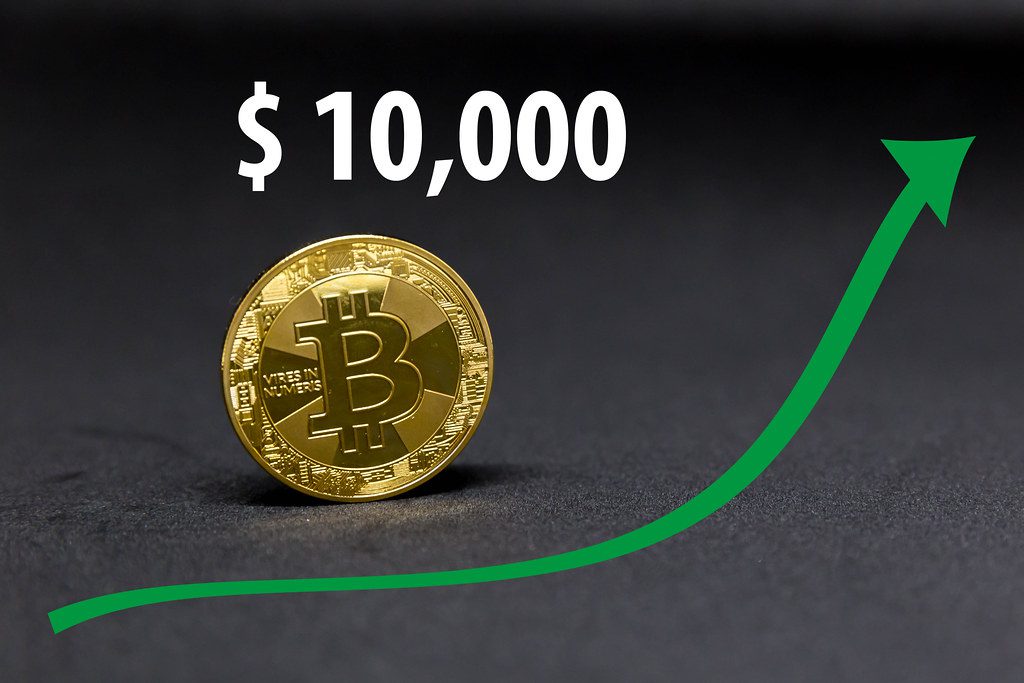The past week has again been an exciting one for Bitcoin and cryptocurrencies, just as it has for the wider world economy. BitMEX, one of the world’s largest crypto exchanges, is facing trial in the United States as authorities suspect serious regulatory violations. At worst this may even lead to an operating ban for some BitMEX employees, but nothing is certain as of yet.
Additionally the world and stock markets have been bewildered by the coronavirus infection of US President Donald Trump. The news came suddenly and its effects on the upcoming elections and economy are still unpredictable. This uncertainty has also been visible in bitcoin’s price swings.
This week we will take a look at hodling, inflation of fiat currencies and how hodling is both a shield and armor against that inflation. Additionally we will check out how Bitcoin benefits merchants and how much renewable energy is used in crypto mining.
Last week’s news can be read here.

Half of all bitcoins have been hodled for over a year
Recent data shows more than half of all circulating bitcoins have remained unmoved for a year or more. Nearly two thirds of all circulating bitcoins have not moved in over a year, while a third has not moved in the span of three years.
44% of all issued bitcoins have stayed dormant in wallets since September 2018. This means hodlers have held them throughout the worst bear markets.
Hodling refers to an investment strategy in which an investor simply acquires and holds bitcoins. Hodling is based on the premise that bitcoin’s price will rise over the long term, which it so far historically has.
Practically anyone who has held bitcoins a longer time has managed to also earn some sums with their investments. Therefore hodling is generally seen as a sound strategy.

Crypto exchanges poorly manage KYC
More than half of the world’s crypto exchanges are poorly managing KYC regulation, meaning they have either weak methods to identify customers or none at all. The news was reported after a study by blockchain analysis firm CipherTrace.
CipherTrace examined over 800 different crypto exchanges. Of these 56% did not at all adhere to KYC regulation, which is meant to combat money laundering and other criminal activity.
The worst results came from Europe, despite the continent being known as one of the strictest regions regarding crypto regulation. Roughly 60% of European crypto exchanges reportedly had inadequate KYC mechanisms. Among nations the weakest KYC compliance was in the United States, United Kingdom and Russia.
According to the study several crypto exchanges refuse to even declare their country of origin. CipherTrace believes this seems like an intentional violation, since 85% of such exchanges had deficient or nonexistent KYC practices.

Bitcoin payments increased sales
Bitcoin payment provider BitPay has published a fresh study on how four merchants from different businesses experienced bitcoin payments. The chosen merchants included a gold broker, an internet gift card marketplace, an electronics retailer and a domain register also serving as a hosting service. According to the study all merchants benefited after allowing their customers to adopt bitcoin as a payment option.
The report states that bitcoin sales completely removed all risks related to chargeback fraud, which had earlier caused significant harm for businesses. The chargeback system refers to a method used by credit card companies and others, whereby already registered payments can be recharged in certain situations. While the system was originally created to protect customers, it has been widely used in various scams.
In addition to nullifying chargeback fraud, the added bitcoin payment option increased the sales of all four merchants. While bitcoin sales only comprised roughly 0.5%-6.5% of all sales, the option alone had increased their customer flow by an average of 40% in the past three years.
”The interviewed merchants identified an opportunity to grow sales by reaching a new customer segment that prefers to pay with bitcoin and other cryptocurrencies when shopping online. While cryptocurrency buyers still represent a relatively small share of spending, cryptocurrency recognition is significant and growing,” the report concluded.

Dollar inflation also affects BTC price
Bitcoin has historically been regarded as an excellent shield against inflation. However, the inflation of fiat currencies also means that the actual value growth of cryptocurrencies has not been as high as graphs suggest. A notable share of increased crypto prices has in turn been a result of fiat currency inflation, reports Cointelegraph.
Cryptocurrencies are most often measured in US dollars. In the past decade the price of the US dollar has depreciated nearly 20% due to inflation. This means that cryptocurrency prices have not in reality risen as much as is generally believed.
If we use the dollar value from the year 2010 to measure bitcoin’s current price, it’s no longer above $10 000 dollars but roughly $8 800 dollars. This does not mean bitcoin would have been a bad investment, but simply that it wasn’t as good as the dollar price suggests. A current dollar is only worth 84 cents compared to its value in 2010.
Despite everything bitcoin appears to be a much better way to protect value from inflation than keeping money in fiat currencies.

A majority of crypto mining uses renewable energy
A new study by the University of Cambridge reveals that 76% of cryptocurrency miners use at least some renewable energy in their mining operations. According to the study roughly 39% of all proof-of-work-based crypto mining derives its energy from renewable energy sources.
The study strongly suggests that using renewable energy in crypto mining is growing. In comparison a study from 2018 showed 28% of mining energy stemming from renewable sources and 60% of miners at least partly used renewables in their operations.
Hydroelectric power was the most significant source with nearly 62% of miners using it. Coal and natural gases were in turn used by 38% and 36% of miners, followed by wind, oil and solar energy.
High energy consumption has been seen as a weakness of proof-of-work cryptocurrencies, as it raises environmental issues. However, the study implies this problem is at least subsiding. If the same amount of energy is produced by renewables rather than fossil fuels, its impact on the environment will also be substantially smaller.

French police suspect terrorism funded by crypto
The French police have arrested 29 people suspected of being linked to funding terrorists in Syria with cryptocurrencies, reports ABC News. The arrests were made earlier this week on Tuesday.
According to the country’s anti-terrorism prosecutor’s office France has also issued search warrants for two French citizens suspected of being the main culprits in the case. The two perpetrators are believed to have been in Syria since the year 2013.
The suspected main figures are both 25 years old and identified as Mesut S. and Walid F. The arrested 29 persons in turn are aged between 22 and 69.
While the uncovered project appears to be one of the biggest schemes so far to fund terrorism with crypto, it is noteworthy that such schemes are very rare and marginal. Generally cryptocurrencies based on open blockchain are poorly suited for financing terrorism or other criminality, since the blockchain permanently registers every transaction.

